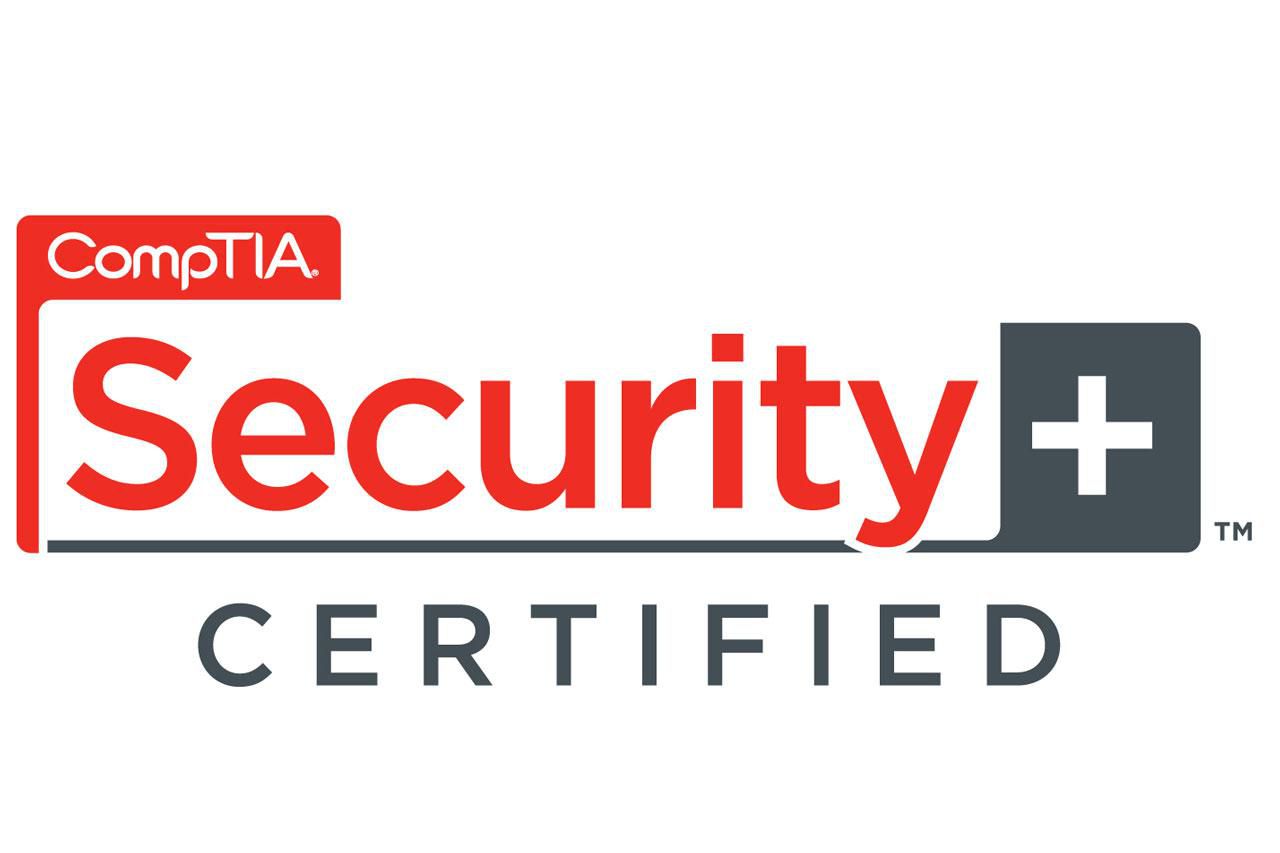If you’ve ever wondered whether cyber security is difficult to learn, you’re not alone. It’s a field that can seem intimidating at first, but with the right mindset and dedication, anyone can master the skills needed to protect against cyber threats. So, is cyber security hard? Let’s try to break this myth and find the best way to get started and turn this journey into a fun and successful one.
Cybersecurity is not necessarily difficult to understand, but it does require time, effort, and a willingness to learn. It is a field that offers rewarding career opportunities for individuals interested in technology and who enjoy the challenge of solving problems. While it may not require advanced math skills, maintaining knowledge and keeping up with industry developments can be challenging. It usually takes about a year or two to fully understand cybersecurity concepts.
Tips for becoming a successful cybersecurity professional include starting with an introductory course, evaluating your passion for technology, learning a little every day, practicing ethical hacking, using simulated environments for practice, developing workplace skills, getting involved in the cybersecurity community, earning certifications, and applying to companies that provide training.
Despite the challenges, cybersecurity is an important and in-demand field with opportunities in various industries and specializations.
Key Takeaways:
- Cybersecurity requires time, effort, and a willingness to learn
- It may take about a year or two to fully understand cybersecurity concepts
- Start with an introductory course and learn a little every day
- Practice ethical hacking and use simulated environments
- Get involved in the cybersecurity community and earn certifications
Exploring the Field of Cyber Security
The field of cyber security offers a wide range of career opportunities for individuals interested in information security and who possess some technical skills, although you can get around just fine without having in-depth technical knowledge. With the rapid advancement of technology, the need for skilled professionals who can protect sensitive data and networks from cyber threats has never been greater.
One of the key aspects of a career in cyber security is information security. This involves implementing measures to protect computer systems, networks, and data from unauthorized access, theft, and damage. It requires a deep understanding of security protocols, encryption techniques, and risk management.
Technical skills are essential in the field of cyber security, especially if you are looking for a career in secure development, penetration testing, or security engineering. Proficiency in programming languages such as Python, Java, or C++ (coding bootcamps are available to speed-up your journey) is highly valued, as it enables professionals to identify vulnerabilities in software and develop secure coding practices. Other technical skills include network security, incident response, and security architecture.
Exploring Career Opportunities
Careers in cyber security span across various industries, including finance, healthcare, government, and technology. There are roles available for individuals at all levels of expertise, from entry-level positions to senior management. Some common job titles in the field of cyber security include information security analyst, network security engineer, and cyber threat intelligence analyst.
As the threat landscape continues to evolve, the demand for qualified cyber security professionals is expected to grow. According to the U.S. Bureau of Labor Statistics, the employment of information security analysts is projected to grow 31 percent from 2019 to 2029, much faster than the average for all occupations.
| Career Path | Median Annual Salary (2020) |
|---|---|
| Information Security Analyst | $103,590 |
| Cybersecurity Engineer | $99,730 |
| Penetration Tester | $103,620 |
| Cybersecurity Consultant | $91,000 |
These figures highlight the lucrative nature of the cyber security industry, making it an attractive prospect for those considering a career in this field.
The Path to Becoming a Cyber Security Professional
There are multiple paths you can take to enter the cyber security industry, such as enrolling in a degree program, enrolling in online courses, and obtaining cybersecurity certifications. These options provide a solid foundation of knowledge and skills that are essential for a successful career in this field.
One path to consider is pursuing a degree program in cyber security. This option offers a comprehensive education that covers a wide range of topics, including network security, ethical hacking, and information assurance. Many universities and colleges offer programs specifically tailored to cyber security, providing hands-on experience and opportunities to develop critical thinking and problem-solving skills.
Another avenue to explore is enrolling in online courses. There are numerous online platforms that offer cybersecurity programs and courses, providing flexibility and convenience for individuals who may not have the time or resources to attend a traditional university program. These courses often allow you to learn at your own pace and cover a variety of topics, from basic concepts to advanced techniques.
In addition to degree programs and online courses, obtaining cybersecurity certifications can greatly enhance your knowledge and credibility in this field. Certifications such as Certified Information Systems Security Professional (CISSP) and Certified Ethical Hacker (CEH) demonstrate your expertise and commitment to staying current with industry standards and best practices.
Overcoming Challenges in Learning CyberSecurity
Learning cyber security can be challenging, but with the right approach and strategies, you can overcome the difficulties. The field of cyber security is constantly evolving, and staying up-to-date with the latest technologies, threats, and defense mechanisms can feel overwhelming. However, by following a few key principles, you can navigate the learning process more effectively.
Continuous learning and practical experience
One of the best ways to learn cyber security is through continuous education and practical experience. Take advantage of introductory courses and online resources to build a strong foundation of knowledge. Additionally, actively seek out opportunities to apply what you’ve learned in real-world scenarios. This may include participating in capture-the-flag competitions, setting up your own lab environment, or contributing to open-source projects. By gaining hands-on experience, you’ll develop critical problem-solving skills that are essential in the cyber security field.
Engage with the cyber security community
Connecting with like-minded professionals in the cyber security community can greatly enhance your learning journey. Join online forums, attend industry conferences, and engage in discussions with experts in the field. Networking with others who share your passion for cyber security not only provides valuable insights and knowledge-sharing but also opens doors to potential mentorship and collaboration opportunities.
Earn certifications and stay current
Certifications play a crucial role in demonstrating your expertise and credibility in the cyber security field. They not only validate your knowledge and skills but also showcase your commitment to continuous learning. Research different certification options and choose those that align with your career goals. Keep in mind that the cyber security landscape is ever-changing, so continuous learning is essential to stay current. Stay updated with industry trends, attend webinars, and subscribe to relevant newsletters or blogs to stay informed about the latest threats, technologies, and defense strategies.
By implementing these strategies and maintaining a growth mindset, you can overcome the challenges of learning cyber security. Remember, it’s a journey that requires dedication, persistence, and a passion for lifelong learning. With each new skill acquired and each challenge conquered, you’ll be one step closer to becoming a successful cyber security professional.
Building a Strong Foundation: Tips for Success
To succeed in the cyber security industry, it’s essential to build a strong foundation and take advantage of the available opportunities. Cybersecurity is not necessarily difficult to understand, but it does require time, effort, and a willingness to learn. If you’re interested in cybersecurity, here are some career tips to help you get started and thrive in this dynamic field:
- Start with an introductory course: Begin your journey by enrolling in an introductory cybersecurity course. This will give you a solid understanding of the fundamentals and help you decide if this field is the right fit for you. ComTIA Security+ is a good one to get started with.
- Evaluate your passion for technology: Cybersecurity is a technology-driven industry, so it’s important to have a genuine interest in and passion for technology. Stay curious and keep up with the latest industry trends to stay ahead of cyber threats.
- Learn a little every day: Cybersecurity is a constantly evolving field, so it’s crucial to stay updated with the latest knowledge and skills. Dedicate time each day to learn something new, whether it’s through online resources, books, or attending webinars.
- Practice ethical hacking: Ethical hacking, also known as penetration testing, allows you to identify vulnerabilities in computer systems and networks. By practicing ethical hacking, you can develop practical skills and gain real-world experience in securing digital assets.
- Use simulated environments for practice: Simulated environments, such as virtual labs, provide a safe space to practice your skills without the risk of causing harm. These environments allow you to test your knowledge, try different strategies, and develop problem-solving abilities.
- Develop workplace skills: In addition to technical skills, it’s important to build workplace skills such as communication, teamwork, and problem-solving. These skills will not only make you a valuable asset to employers but also enhance your overall professional development.
- Get involved in the cybersecurity community: Networking and connecting with other cybersecurity professionals can be invaluable for your career. Join online forums, attend conferences and events, and participate in industry-specific groups to expand your network and learn from experienced experts.
- Earn certifications: Certifications serve as a validation of your skills and expertise in the field of cybersecurity. Obtain relevant certifications, such as Certified Ethical Hacker (CEH), Certified Information Systems Security Professional (CISSP), or CompTIA Security+, to enhance your credibility and increase your job prospects.
- Apply to companies that provide training: Many companies offer training programs and entry-level positions for individuals looking to start a career in cybersecurity. Look for opportunities to gain hands-on experience and learn from industry professionals.
Despite the challenges, cybersecurity is an important and in-demand field with opportunities in various industries and specializations. By building a strong foundation, continuously learning, and engaging with the cybersecurity community, you can position yourself for success in this dynamic and ever-evolving industry.
In conclusion, a career as a security consultant or specialist in the field of cyber security offers exciting opportunities for growth and impact. To thrive in this dynamic field, staying up to date with industry developments, continuously learning, and developing key skills are essential. By building strong relationships with clients and implementing effective security systems, security consultants can play a crucial role in safeguarding businesses and organizations from cyber threats.
Conclusion
In conclusion, cyber security is a field that offers unique challenges and opportunities, requiring continuous learning, dedication, and a willingness to adapt to the evolving cyber landscape. It may not necessarily be difficult to understand, but it does demand time, effort, and a genuine passion for technology. While advanced math skills may not be a prerequisite, staying updated with the latest industry developments can be a challenging task.
Developing a solid understanding of cyber security concepts typically takes about a year or two. To become a successful cyber security professional, consider starting with an introductory course to lay the foundation. Evaluate your passion for technology and commit to learning a little every day. Practicing ethical hacking and using simulated environments for practice can help sharpen your skills and learn new techniques as they emerge. Additionally, focus on developing workplace skills, such as effective communication and problem-solving abilities.
Getting involved in the cyber security community is crucial for networking and staying up to date with industry trends. Earn certifications to demonstrate your expertise and enhance your cybersecurity career prospects. Look for companies that provide training opportunities to gain practical experience. Despite the challenges, cyber security is an important and in-demand field with opportunities in various industries and specializations.
Remember, success in cyber security requires a continuous commitment to learning and adapting to new technologies and security measures. By dedicating yourself to acquiring cyber security skills and implementing effective security measures, you can contribute to safeguarding our digital world and detecting and blocking potential cyber attacks.
FAQs
Is Cybersecurity Hard to Learn?
Cyber security can be challenging to learn due to its complex nature and constantly evolving threats. However, with the right resources, dedication, and a passion for problem-solving, anyone can acquire the necessary knowledge and skills to become proficient in cyber security.
How Do I Get Started in Cyber Security?
To get started in cyber security, you can begin by pursuing a degree in computer science or a related field. Additionally, there are numerous online courses, certifications, and bootcamps available that can help you learn the fundamentals of cyber security and gain practical hands-on experience.
What Are the Job Opportunities in Cyber Security?
The field of cyber security offers a wide range of job opportunities, including cybersecurity roles such as security analyst, security engineer, incident responder, vulnerability assessor, and many more. As the demand for skilled cyber security professionals continues to grow, there are plenty of cybersecurity paths to explore and excel in.
What Skills Do I Need to Be Successful in Cyber Security?
To be successful in cyber security, it is essential to have a strong understanding of networking, programming languages, and operating systems. Additionally, skills such as problem-solving, critical thinking, attention to detail, and the ability to stay updated with the latest cybersecurity trends are crucial.
How Long Does It Take to Become a Cybersecurity Expert?
The time it takes to become a cybersecurity expert can vary depending on individual circumstances and dedication to learning. It typically takes several years of continuous learning, hands-on experience, and professional development to reach an expert level in cyber security.
What Makes Cyber Security Hard?
Cyber security is considered hard due to its constantly evolving nature, the complexity of cyber threats, and the need to keep up with the latest technologies and techniques. Additionally, the field often requires a deep understanding of coding, encryption, network protocols, and software vulnerabilities.
Do I Need a Degree in Cyber Security to Work in the Field?
While a degree in cyber security or a related field can be beneficial, it is not always a requirement to work in the field. Many cybersecurity professionals come from diverse backgrounds and have gained knowledge and skills through self-study, certifications, and practical experience.
Are Coding Skills Necessary for a Career in Cyber Security?
While coding skills are not always mandatory for a career in cyber security, having a basic understanding of programming languages can be extremely beneficial. Knowledge of programming languages can help you better understand and analyze malware, develop scripts for automation, and identify vulnerabilities in software.
How Can I Improve My Cyber Security Skills?
To improve your cyber security skills, you can participate in hands-on exercises, capture the flag (CTF) competitions, and hacking challenges. Additionally, staying up to date with industry-specific news, attending conferences, and joining online communities can provide valuable opportunities for learning and networking.
What Can I Do to Enhance Cyber Security in My Organization?
To enhance cyber security in your organization, you can implement security best practices such as conducting regular security audits, employee training programs, implementing strong access control measures, ensuring regular software updates, and establishing incident response plans.











